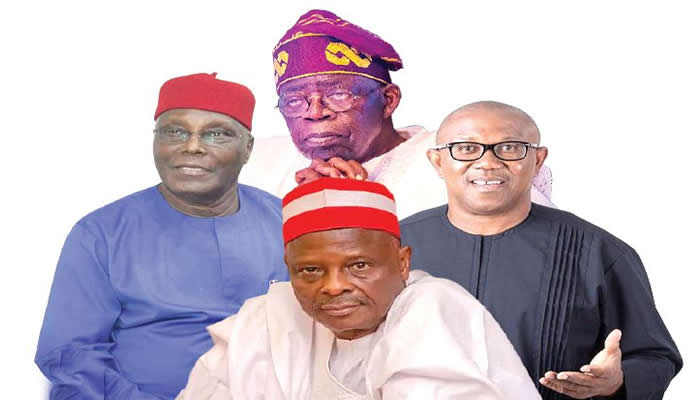The recent electoral victories of opposition parties in the United States and Ghana have ignited a spark of hope and inspired a flurry of political activity within Nigeria’s opposition landscape. Donald Trump’s triumph over incumbent Vice President Kamala Harris and John Mahama’s victory over Ghanaian Vice President Mahamudu Bawumia have served as compelling examples of the potential for change, fueling the belief that a similar outcome could be achieved in Nigeria’s upcoming 2027 presidential election. Several prominent opposition figures, including Atiku Abubakar of the Peoples Democratic Party (PDP), Peter Obi of the Labour Party (LP), and former Kaduna State Governor Nasir El-Rufai, have reportedly engaged in discussions exploring the formation of a new political party or a strategic coalition to challenge the ruling All Progressives Congress (APC) and President Bola Tinubu’s re-election bid.
The discussions between key opposition figures point to a growing recognition of the need for a united front to effectively challenge the incumbent government. While initial reports of a joint ticket between Atiku and Obi were denied by their respective camps, Atiku’s spokesperson subsequently confirmed ongoing discussions aimed at forging a unified opposition. This development coincides with similar moves by other parties, including the Peoples Redemption Party (PRP) and African Democratic Congress (ADC), who have confirmed talks regarding a potential merger. Furthermore, the Coalition of United Political Parties (CUPP) and the Social Democratic Party (SDP) have also expressed their willingness to engage in alliance discussions, emphasizing the need for a broader coalition beyond just Atiku and Obi. Adding further intrigue to the evolving political landscape, former President Olusegun Obasanjo has hosted meetings with prominent political figures, including former Kano State Governor Rabiu Kwankwaso and former Cross River State Governor Donald Duke, sparking speculation about potential strategic alliances and the future direction of Nigerian politics.
While the prospect of a unified opposition presents a significant challenge to President Tinubu’s re-election ambitions, the Nigerian political terrain is notoriously complex, and the success of such a coalition is far from guaranteed. Historically, opposition victories against incumbent governments have been rare in Nigeria, with the 2015 election of Muhammadu Buhari, who defeated Goodluck Jonathan, being a notable exception. Buhari’s victory was facilitated by a strategic merger of several opposition parties, forming the APC, a model that the current opposition leaders appear to be considering. The combined votes of Atiku, Obi, and Kwankwaso in the 2023 election exceeded Tinubu’s winning margin, suggesting that a united opposition could pose a formidable threat. However, forging a cohesive and effective coalition requires navigating complex political dynamics, managing diverse interests, and presenting a unified vision to the electorate.
Beyond the potential challenge posed by a united opposition, President Tinubu also faces the hurdle of addressing Nigeria’s pressing economic challenges, which have become a focal point of criticism from the opposition. The current economic climate, characterized by high inflation rates and a substantial national debt, mirrors the situation in Ghana, where economic hardship played a significant role in the opposition’s electoral victory. The opposition in Nigeria has seized upon these economic vulnerabilities, drawing parallels with the Ghanaian situation and highlighting the potential for similar voter discontent. The government’s economic policies, particularly the removal of fuel subsidies and the floating of the naira, have been criticized for exacerbating economic hardship, and the opposition is likely to leverage these concerns in the run-up to the 2027 election.
The opposition parties, buoyed by the recent political developments in Ghana and the US, have expressed optimism about their prospects in the 2027 election. They believe that the economic difficulties faced by Nigerians under the Tinubu administration create a favorable environment for a change in leadership. The PDP, in particular, has drawn parallels between the economic situations in Ghana and Nigeria, suggesting that similar voter dissatisfaction could lead to an opposition victory. However, they also emphasize the crucial role of the Independent National Electoral Commission (INEC) in ensuring free and fair elections, expressing concerns about the potential for electoral manipulation. The opposition’s optimism is tempered by the recognition that a free and fair electoral process is essential for their hopes to be realized.
The NNPP echoed the PDP’s sentiments, emphasizing the importance of strong and impartial institutions in ensuring that the will of the people prevails. They express hope that the positive changes witnessed in Ghana’s electoral process will influence Nigeria, leading to greater transparency and accountability. The NNPP also expressed openness to forming coalitions with other opposition parties, prioritizing good governance and the best interests of Nigeria. In contrast to the optimism expressed by the opposition, the ruling APC has downplayed the significance of the opposition’s political maneuvers, dismissing them as inconsequential and expressing confidence in President Tinubu’s re-election prospects. They argue that Tinubu’s performance and pedigree will resonate with voters, ultimately securing him a second term. The APC also dismisses the comparison between the political and economic situations in Nigeria and Ghana, asserting that the reforms implemented by the Tinubu administration will yield positive results before the 2027 election. This contrasting perspective sets the stage for a potentially intense and closely contested election in 2027.














